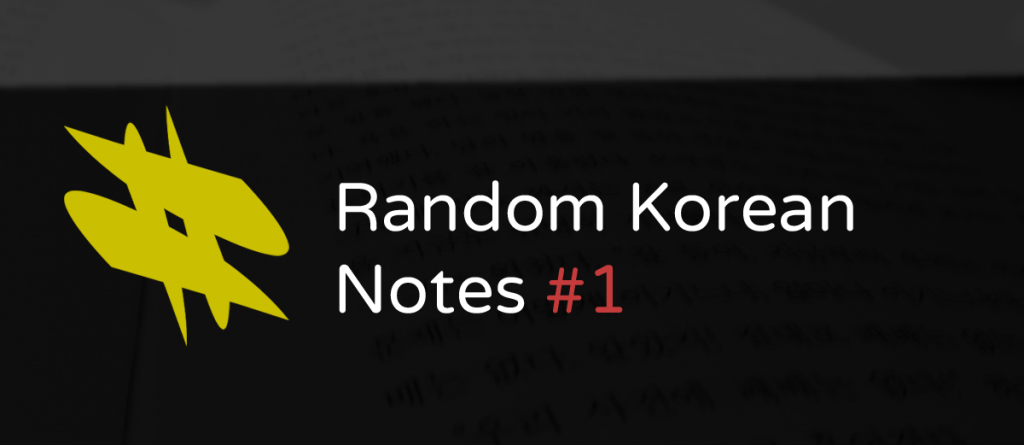Random Korean Language Notes #1

- In english, we call it “selfie” but in Korean it’s known as “selca” (셀카)
- 큰절 and 근절 may sound similar but have to different meanings. The former means “deep bow” while the latter means “extermination” or “eradication.”
- Anki is a great tool for memorizing Korean vocabulary. Make sure to download it for your smartphone as well!
- In Korea, China and Japan, the number system uses decimals grouped into ten thousands (만, 억, 조) as opposed to the western thousands (thousand, million, billion).
- While the Koreans greet each other the same way no matter the time of day (an-nyeong-ha-se-yo (안녕하세요)), young people sometimes useKonglish words when chatting with friends online. 하이 (hi) and 굿나잇 (goodnight) are some examples.
- Konglish means words derived from the English language and used in Korean (Korean + English = Konglish).
- 뭐 at the end of a sentence means “well..”
- In sports, players are always refered to by [name]+선수 (seon-su, meaning player).
- 머리카락 refers to hair on your head but if you want to talk about hair on your body, you should use the word 털 (다리털 = leg hair)
- 정 (jeong) refers to a kind of love that a lot of foreigners have a hard time grasping. Try asking your Korean friend what it means and see if you can relate.
- 한 (han) is another one of those special Korean feelings and refers to, to put it simply, a type of feeling of oppression. Wikipedia has a great article on han, be sure to check it out if you want to learn more!
By: Kimchi Cloud
Random Korean Language Notes are a collection of short facts, thoughts and insights on all aspects of the Korean language and how to learn it and without going too much indepth. Whether you’re just starting out or have been learning Korean for a long time, hopefully you will find something interesting or something you didn’t realize or think about before!
No Comments

